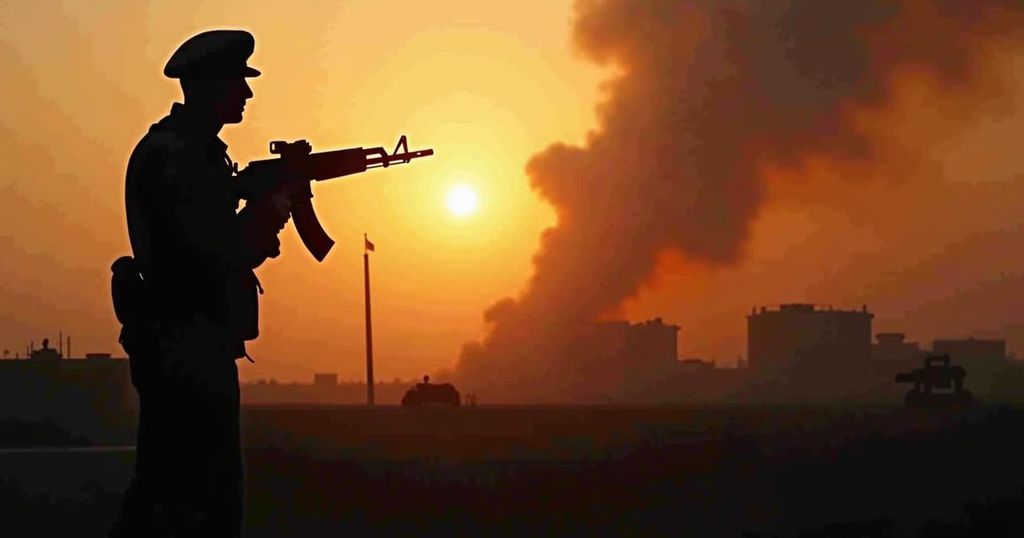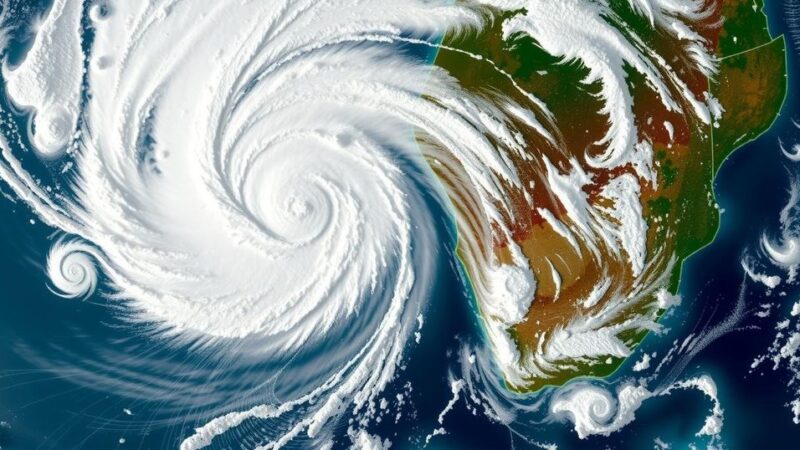Israeli Defence Minister Yoav Gallant cautioned Iran about potential consequences akin to those in Gaza and Beirut if it pursued actions against Israel. Following an Israeli airstrike in Gaza that claimed 21 lives, the conflict in Lebanon has seen continued Israeli bombardments leading to thousands of displacements and significant casualties on both sides. French President Macron’s call for halting arms to Israel sparked criticism from Prime Minister Netanyahu, further complicating international relations amid this escalating crisis.
On Sunday, Israeli Defence Minister Yoav Gallant issued a stark warning to Iran, suggesting that if the Islamic Republic takes steps to threaten Israel, it could face the same devastation currently witnessed in Gaza and Beirut. This statement comes on the heels of an Israeli airstrike on a mosque in Deir al-Balah, Gaza, which tragically resulted in the deaths of at least 21 individuals, according to the local civil defense agency. The intensification of Israeli aerial bombardments in Lebanon, particularly against Hezbollah strongholds, has led to massive explosions in the southern suburbs of Beirut. In response to these escalating tensions, French President Emmanuel Macron called for the international community to cease any arms deliveries to Israel meant for use in Gaza. Israeli Prime Minister Binyamin Netanyahu criticized Macron, declaring his stance brought “shame” upon France, although Macron’s office later reiterated France’s unwavering support for Israel, deeming Netanyahu’s remarks as “excessive.” The ongoing conflict has prompted a significant humanitarian crisis, with around 374,000 people reportedly fleeing from Lebanon to Syria as a result of the bombardments. Since Hamas initiated attacks against Israel on October 7, over 2,000 people have lost their lives in Lebanon, with approximately 1,000 fatalities occurring within the past week alone, leading to an estimated 1.2 million individuals being displaced from their homes. Additionally, Israel has suffered military casualties, with nine soldiers reported dead since launching ground operations across the northern border on October 1. The situation remains fluid, with further clashes between Hezbollah fighters and Israeli troops occurring near the border, indicating a potential escalation in hostilities.
The article addresses the rapidly deteriorating security situation in the Middle East, particularly focusing on the Iranian-Israeli conflict and the impact of military operations in Gaza and Lebanon. It highlights the consequences of a recent Israeli airstrike that caused significant civilian casualties in Gaza and captures the responses from international leaders, underscoring tensions surrounding military support and arms sales in the region. The rise in humanitarian crises, with mass displacements due to ongoing violence, further illustrates the dire stakes of the conflict.
The warnings issued by Israeli officials against Iran signify the growing potential for an expanded conflict that could mirror the devastation currently experienced in Gaza and Lebanon. The international response, as articulated by leaders like French President Macron, reflects the complex geopolitical dynamics at play, wherein humanitarian concerns and military strategies intersect—including the call for an end to arms shipments to Israel. As the humanitarian crisis escalates, highlighted by mass displacements and increasing death tolls, the urgency for ceasefire and resolution becomes paramount.
Original Source: www.france24.com







